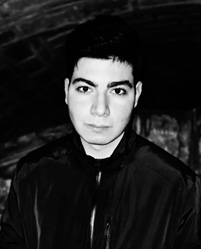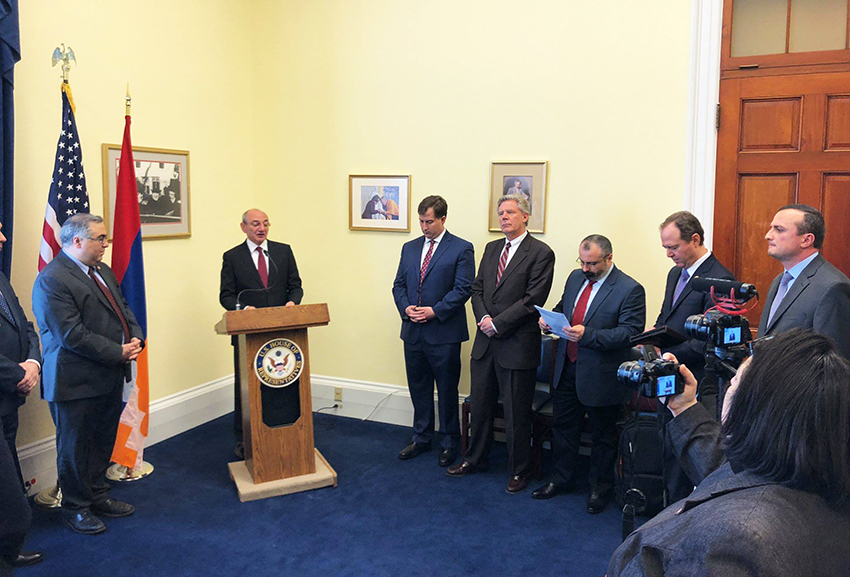 By HARUTYUN AMIRKHANYAN
By HARUTYUN AMIRKHANYAN
©Harmir
In memory of my friend’s dad Michael Chardukian
August 20th, 2024, Fresno, California. I came out of work, stopped by a liquor store, and got a six-pack of Guinness. At 9 PM I met Jonathan at my place to talk. He brought a carton of Dunhill that belonged to his dad. We grabbed 2 glass mugs, a church key, and went outside. The night was setting in. Planet Earth spun a little to hide its American face from the sun. Whereas the blue moon has been ascending from the fences surrounding us. I placed the chairs by the pool to have a better view of the scene.
Just a usual day, usual place, and two friends who have known each other for only two years lit up the cigarettes. “This feels high caste, your dad knew what he was smoking,” I said.
Jonathan took two consequent puffs, circulated the smoke through his lungs, and blinked. “He liked high life, buying fancy coats, and timepieces, but I feel he was depressed. He never showed what’s in his soul.”
“Everyone is depressed,” I said.
Jonathan continued, “He didn’t seem to think about the future at all, or maybe the future did not seem as pressing to him. But that’s just the way of life, it’s fragile and you never know when it’s gonna break. A man who was detached from this world but still kept engaging with the community died in front of his son, by the river, on a fishing journey. This sounds like a script.”
“I think you present it fashionably,” I added.
“Yeah, I try to find some mysterious explanations: there was his coworker, we met at a shop on the way to the mountains. He hadn’t seen that man for 30 years, and the two submerged into an ordinary banter about good old days. This seems symbolic. It feels as if the past, present, and future formed a ring,” he spoke.
“Unless it’s the final lap, and you are done,” I said
We both gulped some beer. Jonathan started playing The Doors on his phone, it was his dad’s favorite band. “I wish I had smoked with him at least once; he used to attempt to hide his smoking habits. We all knew that he was doing it, but he never felt comfortable in the family to be sincere about it. Michael is now envious of us smoking his cigarettes,” said Jonathan.
“Life is poetry, one day it is, the other day it is not, and we only start to appreciate that, which we might lose,” I said.
“We only appreciate once it’s gone, I think,” He argued. “He was a middle-class man, but gave me all that he could, he would tell others that he was proud of me, our face-to-face relationship never touched that. I never tell anyone that I love them. I wish I had done it, at least once for him.”
“I am the same way. It’s from being too emotional; we hide our feelings, our real faces and carry a mask. Or maybe we do not know who we are, is it a character that we are pretending to be? You’ll never know.” I was trying to use impromptu poetry as a coping mechanism. “Time’s changing, we are changing. Life is suffering and our soul is the object of it. It takes all the beatings, gets filled with holes, as a 3D net, a wounded matter that barely holds its shape.”
I took a pause to smoke, Jonathan struck, “It puts things into perspective, seeing the moon, knowing that despite the suffering, the sun still rises, the wind still blows. Our ancestors have watched the same moon and grieved upon the same losses.”
“But the moon doesn’t feel us, nor does the sea. “Nor the ladies at the bar,” I added. “You think time heals?” I asked.
“No, it allows you to face the truth. The grim reality that’s stuck in your soul.” He spoke.
“Time lets you forgive and reconcile,” I said.
“I don’t think I talk to anyone like I talk to you,” he said, “You are like a therapist drawing everything out of my mind.”
“I am enjoying the conversation,” I said. “And what I picture best is drama… twists of life.”
We took no breaks in between cigarettes. Within two hours each of us savored eight or more. The 6 pack was downed too. “We are wasting time, or probably not, I don’t think it’s a waste,” Jonathan said.
“We are clarifying things,” I retorted.
Even though Jonathan had difficulty in grasping the reality of the situation, he seemed realistic with his grief. And that day we weren’t trying to forget it. Neither I was good at consoling people. Instead, we aimed to find an explanation as to what life is. He would say, “Life is a funny thing.”
We could talk about his dad dying, switch to philosophy, and then end up talking girls.
In the meantime, Jonathan was texting his girl. I asked if she catches up intellectually. – “To some extent,” he said. “She nods when I say mentally demanding things, but she most likely doesn’t understand it. It’s still good anyway, having someone who knows about you, gives you support, and keeps up conversation.” “Did she hug you when you met her at her house,” I asked.
“Of course, she did, I just told her that my dad died,” He said, grinning in distraught.
As Sparapet said: “Men have needs that only women can satisfy. Be it bodily or morally,” I said recalling our mutual friend.
Jonathan and I had invented our scale of judging people, its foundation lies in the Indian Caste system. That people are never equal, life is always unfair, and anyone belongs to their level of social reach.
It has nothing to do with racism, but pure intellect, behavior, and culture.
Henceforth the pyramid extends, from lowest to highest. Each caste has its good-looking women. Some of them know things, others understand, and very few feel. And because our target audience is female, they also diverge into two groups: women and boots. Women seek long-term relationships or nothing at all; they act virtuous and do not let men cross the boundaries. Boots, on the other hand, are promiscuous, they are addicted to pleasure and change partners at ease. On monetary terms, boots cost less than women, but Jonathan would argue that you pay more with your soul.
So, while he was talking to his mid-caste woman, I remembered my low-caste boots.
We had met in a bar a few weeks ago, I saw her pretty face sipping on Moscow Mule. It took 7 seconds of eye contact to make me approach her. She looked amorous and prepared for our first conversation. “You have good taste, is it the first or last drink,” I asked. The background music was “Eyes without a Face”. And I knew it was about her.
She faced me and said, “it depends, maybe somewhere in the middle.” I sat beside her, ordered another beer, and talked for about an hour. We left the bar at the same time, I got her number while smoking a cigarette by the entrance. I was going to let her go, but I felt that she was not sober enough to drive. So, we left her car in the parking lot, and I drove her home.
In the coming weeks, I met her every day in the evenings and nights, because she worked and I worked too. It was gradually escalating, we touched and felt and kissed, repeated all over again, day after day. At the cinema, inside the bars, and on the ghetto streets of Fresno downtown. It was fun for real, but her intellectual capacity never satisfied me. She would binge drink quite often, smoke every evening, and hang out with her skater friends. To me, it’s a waste of life, to her it’s fun while she is young.
I tried to convince her to stop, but it was all in vain. She had already gotten deeply submerged in vices. The reason for my concern was not that I loved her, we were just having a good time together. And as a human-to-human relationship, I cared.
The last time I saw her, she told that she didn’t want to get addicted to me, seemed pretty horny that day though. We listened to the same song that had brought us together “Eyes without
Face”. I dropped her off and kissed her goodbye. That’s how the thrill ended.
“Forget her,” Jonathan said.
“Yeah, they’ll come and go,” I said, and looked at the sky, “Where is the moon? It disappeared.”
I burst into laughter, and so did Jonathan.
“Ohh man.” He stood up walked to the lawn like a bear and pointed his index finger towards the dense pine trees. It’s right there, hiding.”
“The moon is elusive,” I uttered. My voice was getting hoarser the more I smoked, at times it sounded so vibrant and deep I could make an excuse for tarnishing my lungs.
Jonathan was getting the Armenian, Kharpertsi smile back on his face. His eyes, anyhow, remained wet, pupils protruded. He was grieving in peace. His gamut of recognition was pushed to limits. Now he sees life with its brightest and darkest shades. And to my question, if he would have chosen not to have gotten tamed by fatherly love, he replied. “I am glad for every moment I have spent with my dad. For the good and for the bad experiences that we shared.
I was predicting this day to come and had been warning him to get lean, eat right, and stuff. He never listened. He lived as a rebel, died as a leaf floating in the wind”. “Some people don’t change, you have to tolerate.” I commented.
“Ok, let’s call it a night.” He stood up to collect his keys, phone, and water bottle. I reached for the plastic cup. Gulped it. Only when it hit my throat, I realized that this was the ashtray stuffed with chain-smoked cigarettes. Then I lurched towards the grass, stuck my fingers in my mouth to threw up. Jonathan came over, and offered some water, “Life is a funny thing” He said.









